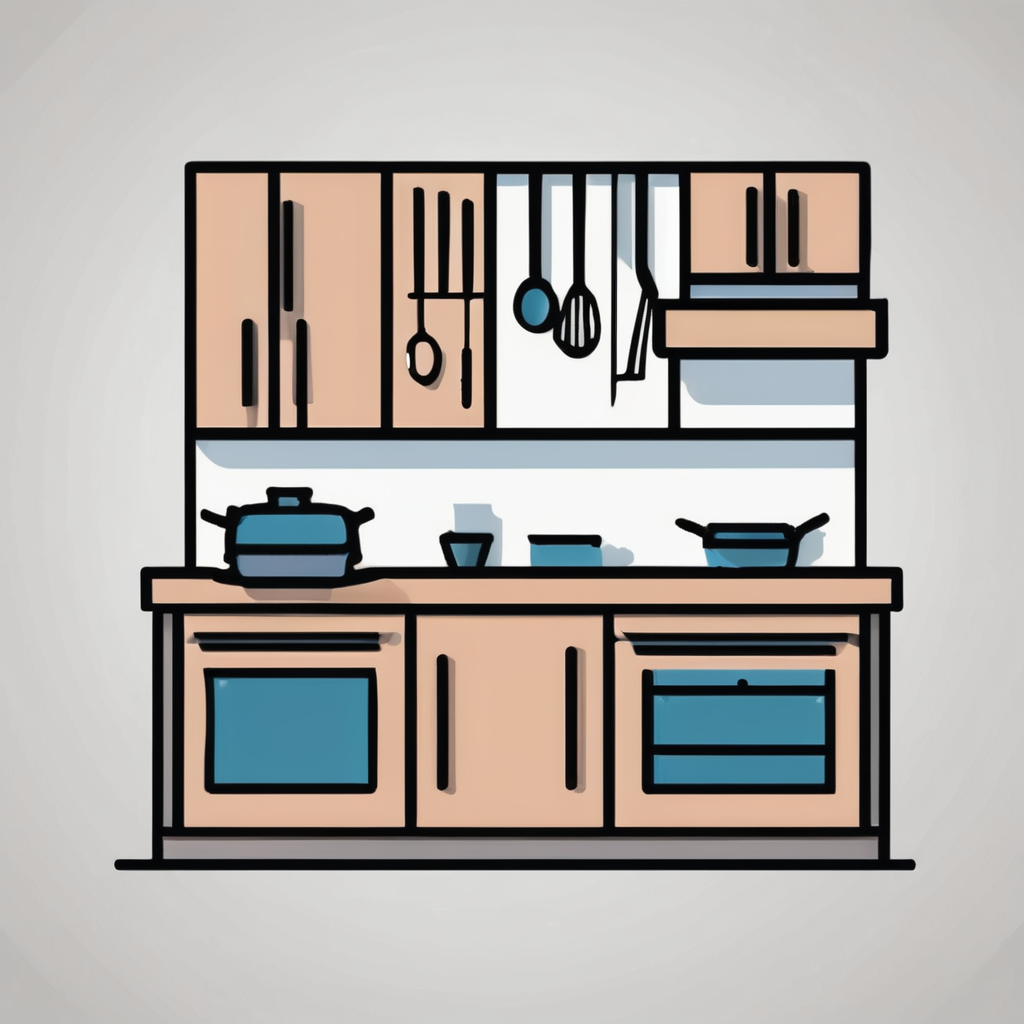Key UK Kitchen Innovations Transforming Traditional Cooking
The UK kitchen innovations landscape has rapidly evolved, integrating modern kitchen technology that fundamentally alters home cooking. At the forefront are smart kitchen appliances—devices that communicate with users and each other to streamline meal preparation. Such innovations range from intelligent ovens that adjust cooking times automatically to refrigerators that monitor food freshness, redefining convenience in daily routines.
Beyond gadgets, innovative kitchen layouts contribute significantly. Open-plan designs, combined with ergonomic workspaces, promote easier multitasking and social interaction during cooking. Tools like induction hobs and touch-controlled faucets enhance efficiency and precision, encouraging home cooks to experiment more confidently.
Also to see : What makes a kitchen design timeless in the UK?
These advances have reshaped the home cooking evolution in the UK. Traditional methods, often labour-intensive, are gradually complimented or replaced by technology-driven techniques. Consumers now enjoy features like recipe apps integrated with appliances, guiding them step-by-step and reducing errors.
This blend of technology and design not only accelerates cooking processes but also improves energy efficiency and safety. UK households embracing these changes report less kitchen stress and more creative freedom, illustrating how smart kitchen appliances and innovative tools are key players in transforming everyday culinary experiences.
Additional reading : What Emerging Trends Will Shape the Future of Kitchen Design in the UK?
Practical Changes in Day-to-Day Cooking Routines
Understanding how innovation reshapes cooking habits
The impact on daily cooking in UK homes is profound due to the rise of modern kitchen technology. Smart kitchen appliances have simplified complex tasks, shifting home cook habits from manual timing and constant monitoring to more automated, precise processes. For example, intelligent ovens adjust cooking modes automatically, delivering consistent results and lessening the need for guesswork.
Comparing traditional vs modern kitchens, traditional setups relied heavily on manual controls and routine methods, demanding significant skill and time. Today, many UK kitchens feature induction hobs that heat quickly and evenly, combined with smart devices that sync with recipe apps to guide each step. These tools encourage even novice cooks to attempt diverse dishes confidently.
In response to these innovations, home cooks have adjusted their routines by embracing technology to minimize stress and improve efficiency. Instead of juggling multiple pots and timings, many now focus on preparation while appliances manage cooking sequences. This evolution in home cook habits underscores a shift toward convenience, reliability, and energy-saving practices, highlighting how UK kitchen innovations actively transform everyday culinary experiences.
Before-and-After Scenarios: Real-Life Applications
Explore the tangible effects of UK kitchen innovations by looking at before and after kitchen upgrades. Many UK households, initially reliant on traditional setups with manual controls and limited automation, report dramatic improvements after adopting smart kitchen appliances. For example, one family replaced their conventional oven with an intelligent model that adjusts temperature and cooking time via app control. This upgrade led to more consistent meal outcomes and reduced energy consumption.
User experiences frequently highlight greater efficiency and enjoyment. Before these innovations, cooking often involved tedious multitasking and close supervision. After embracing modern appliances and innovative kitchen tools, users note time savings, reduced stress, and newfound confidence to try complex recipes. Household members have shifted from constant monitoring to focusing on preparation, supported by devices that manage cooking stages.
Practical benefits also extend to energy efficiency and kitchen safety. Induction hobs and automatic shut-off features minimize risks, while smart refrigerators track food freshness to reduce waste. These real-life cases underscore how kitchen upgrades UK reshape home cooking, blending technology and design into everyday routines. The shift emphasizes enhanced user convenience, reliability, and sustainability, showcasing the depth of the home cooking evolution in British kitchens.
Leading Brands and Technologies in UK Kitchens
Discovering the UK’s top players driving kitchen innovation
UK kitchens increasingly benefit from UK kitchen appliance brands leading in modern kitchen technology. Brands like Dyson, known for pioneering smart cleaning tools, and Aga, innovating traditional cooking ranges with digital controls, are instrumental in transforming the cooking space. Their appliances combine reliability with advanced features that support the home cooking evolution, making tasks simpler and more precise.
In terms of top kitchen technologies, smart ovens with Wi-Fi connectivity and app integration allow users to monitor cooking from anywhere. Induction hobs are celebrated for safety and energy efficiency, while intelligent refrigerators track food stocks to reduce waste. These innovative kitchen tools enhance meal preparation, encouraging well-organized cooking routines.
Home cooks now prioritize integrating these reliable, technologically advanced appliances for convenience and better outcomes. The synergy between leading brands and the latest tech fosters environments where tradition meets innovation effortlessly. With rising demand for multi-functional devices, UK kitchens continue evolving, driven by manufacturers who understand user needs and practical solutions.
Such developments mark a significant step within the ongoing home cooking evolution, making advanced, user-friendly technology accessible for every household. This trend highlights how UK kitchen appliance brands and smart tools collectively reshape cooking experiences.
Expert Insights and Future Trends in Home Cooking
Exploring professional perspectives and upcoming innovations
UK chefs and kitchen designers consistently highlight that expert opinions kitchen innovations emphasize blending tradition with technology. They note that while cooking trends UK increasingly favour smart appliances, preserving flavour and technique remains vital. Experts advise integrating modern kitchen technology thoughtfully, to enhance, not overshadow, culinary skills.
Looking ahead, the future of home kitchens points to greater automation and connectivity. Voice-controlled devices and AI recipe assistants are expected to become standard, simplifying meal planning and execution. This evolution supports more sustainable cooking practices by reducing waste and energy use, a key focus for environmentally aware UK households.
To successfully adapt, experts recommend home cooks gradually incorporate innovations that complement their existing styles. For example, starting with smart kitchen appliances that offer precise temperature control can improve results without overwhelming users. Such measured adoption encourages confidence and creativity, bridging the gap between traditional cooking and cutting-edge tools.
In summary, industry leaders foresee a kitchen landscape where home cooking evolution thrives through technology that supports, educates, and inspires users—making cooking both efficient and enjoyable.




